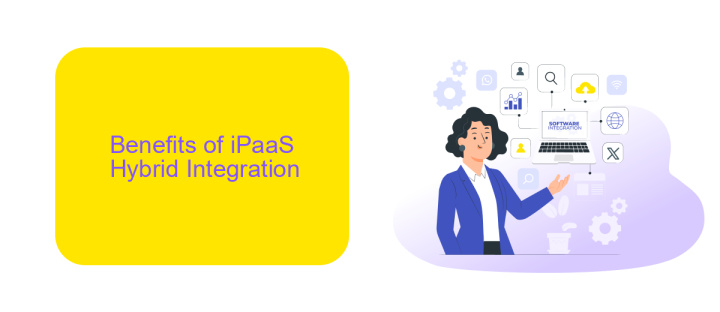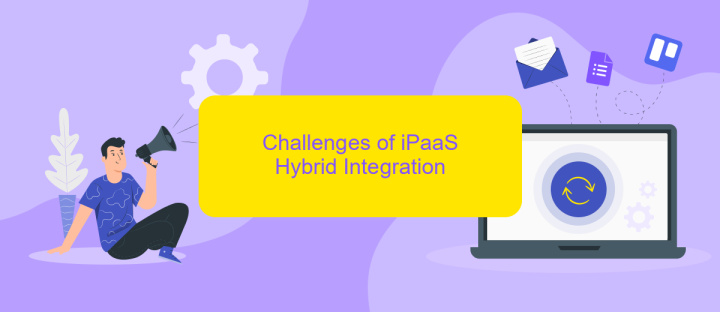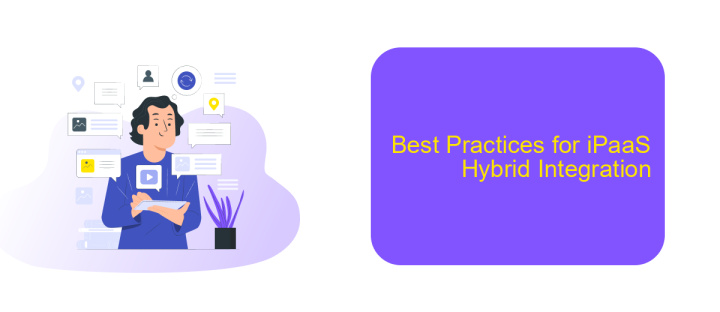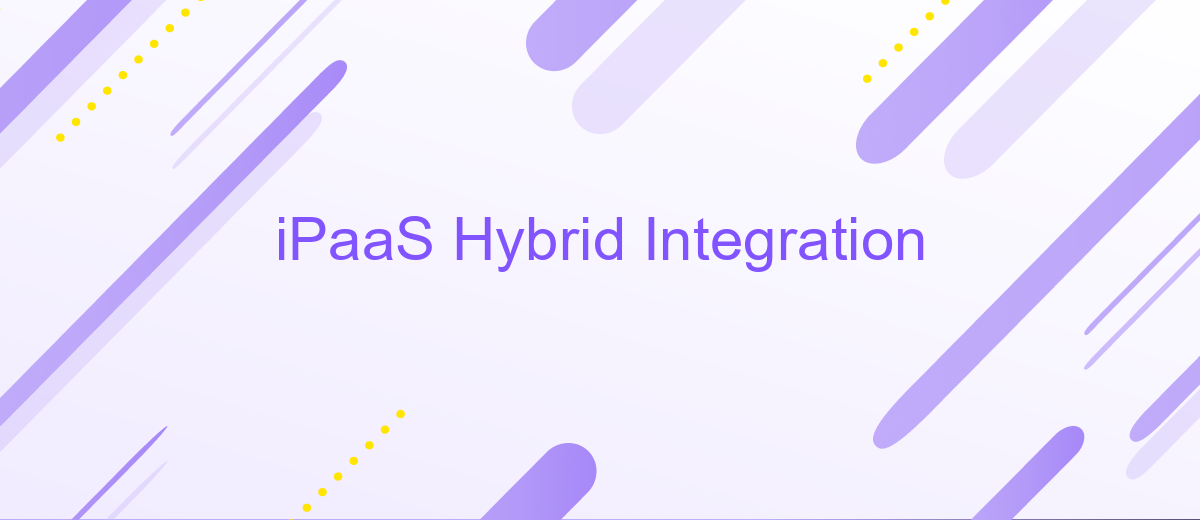iPaaS Hybrid Integration
In today's rapidly evolving digital landscape, businesses are increasingly turning to Integration Platform as a Service (iPaaS) solutions to streamline their operations. iPaaS hybrid integration offers a powerful approach, blending cloud and on-premises systems to ensure seamless data flow and connectivity. This article explores the benefits, challenges, and best practices for implementing iPaaS hybrid integration in modern enterprises.
Introduction
In today's fast-paced digital landscape, businesses are increasingly turning to Integration Platform as a Service (iPaaS) solutions to streamline their hybrid integration needs. iPaaS offers a comprehensive platform that enables seamless connectivity between disparate systems, applications, and data sources, ensuring smooth and efficient operations.
- Automated workflows that save time and reduce errors
- Scalable solutions to accommodate growing business needs
- Real-time data synchronization for up-to-date information
- Enhanced security and compliance features
- User-friendly interfaces for easy configuration and management
One such powerful tool in the iPaaS ecosystem is ApiX-Drive, which offers robust capabilities for setting up and managing integrations effortlessly. ApiX-Drive simplifies the process by providing pre-built connectors and intuitive dashboards, allowing businesses to focus on their core activities while ensuring their systems are interconnected and data flows seamlessly. By leveraging iPaaS solutions like ApiX-Drive, organizations can achieve greater efficiency, agility, and innovation in their operations.
Benefits of iPaaS Hybrid Integration

iPaaS Hybrid Integration offers a seamless blend of on-premise and cloud-based systems, providing businesses with the flexibility to adapt to changing technological landscapes. This integration model ensures that data flows smoothly between diverse environments, enhancing operational efficiency and reducing the complexity of managing multiple systems. By leveraging iPaaS, companies can streamline their workflows, automate processes, and improve real-time data accessibility, which is crucial for informed decision-making.
One of the significant benefits of iPaaS Hybrid Integration is its ability to simplify the integration process with tools like ApiX-Drive. ApiX-Drive enables businesses to set up integrations without extensive coding, making it accessible even for non-technical users. This service supports a wide range of applications and services, ensuring that businesses can connect their preferred tools effortlessly. As a result, organizations can achieve faster deployment times, lower integration costs, and maintain a high level of agility in their operations.
Challenges of iPaaS Hybrid Integration

Implementing iPaaS hybrid integration presents several challenges that organizations need to address to ensure seamless connectivity and data flow between disparate systems. The complexity of managing both on-premises and cloud-based applications often requires robust strategies and tools.
- Data Security: Ensuring data security across different environments can be difficult, requiring stringent security protocols and compliance measures.
- Scalability: Managing the scalability of hybrid integrations can be complex, as it involves balancing workloads between cloud and on-premises systems.
- Data Synchronization: Achieving real-time data synchronization between various systems is crucial but challenging due to latency and data integrity issues.
- Integration Management: Overseeing multiple integrations and maintaining their performance can be demanding, necessitating comprehensive monitoring tools.
- Vendor Lock-in: Organizations may face vendor lock-in issues, limiting their flexibility to switch between different iPaaS providers.
To mitigate these challenges, leveraging services like ApiX-Drive can be beneficial. ApiX-Drive offers user-friendly tools for setting up and managing integrations, ensuring secure data transfer and real-time synchronization. By utilizing such services, businesses can simplify the complexity of hybrid integrations and focus on their core operations.
Best Practices for iPaaS Hybrid Integration

Implementing a successful iPaaS hybrid integration requires careful planning and execution. Start by assessing your current integration landscape and identifying the specific needs and goals of your organization. This will help in selecting the right iPaaS solution that aligns with your business objectives.
Once you have a clear understanding of your requirements, focus on data security and compliance. Ensure that the iPaaS platform you choose offers robust security features and complies with industry standards and regulations. This is crucial for protecting sensitive data and maintaining the trust of your stakeholders.
- Define clear integration objectives and key performance indicators (KPIs).
- Choose an iPaaS solution that supports scalability and flexibility.
- Utilize services like ApiX-Drive for seamless integration and automation.
- Regularly monitor and optimize your integration processes.
- Ensure proper documentation and training for your team.
By following these best practices, you can achieve a seamless and efficient iPaaS hybrid integration. Leveraging tools like ApiX-Drive can further simplify the process, allowing you to automate workflows and improve overall productivity. Continuous monitoring and optimization will ensure that your integration remains effective and aligned with your evolving business needs.
Conclusion
In conclusion, the iPaaS Hybrid Integration model offers a versatile and scalable solution for businesses aiming to streamline their workflows and enhance their operational efficiency. By seamlessly connecting on-premises systems with cloud-based applications, organizations can achieve a unified data ecosystem that supports real-time data exchange and improved decision-making processes. This hybrid approach not only reduces the complexity of IT infrastructure but also ensures greater flexibility and adaptability in a rapidly evolving technological landscape.
For businesses looking to simplify their integration processes, services like ApiX-Drive provide invaluable support. ApiX-Drive offers a user-friendly platform that facilitates the easy setup and management of integrations without requiring extensive technical expertise. By leveraging such tools, companies can quickly integrate various applications and systems, thereby accelerating their digital transformation journey. Ultimately, embracing iPaaS Hybrid Integration, supported by efficient integration services, enables organizations to stay competitive and responsive to market demands.
- Automate the work of an online store or landing
- Empower through integration
- Don't spend money on programmers and integrators
- Save time by automating routine tasks
FAQ
What is iPaaS Hybrid Integration?
How does iPaaS Hybrid Integration benefit businesses?
What are some common use cases for iPaaS Hybrid Integration?
How secure is data in an iPaaS Hybrid Integration setup?
Can non-technical users manage integrations with iPaaS Hybrid Integration?
Time is the most valuable resource for business today. Almost half of it is wasted on routine tasks. Your employees are constantly forced to perform monotonous tasks that are difficult to classify as important and specialized. You can leave everything as it is by hiring additional employees, or you can automate most of the business processes using the ApiX-Drive online connector to get rid of unnecessary time and money expenses once and for all. The choice is yours!


